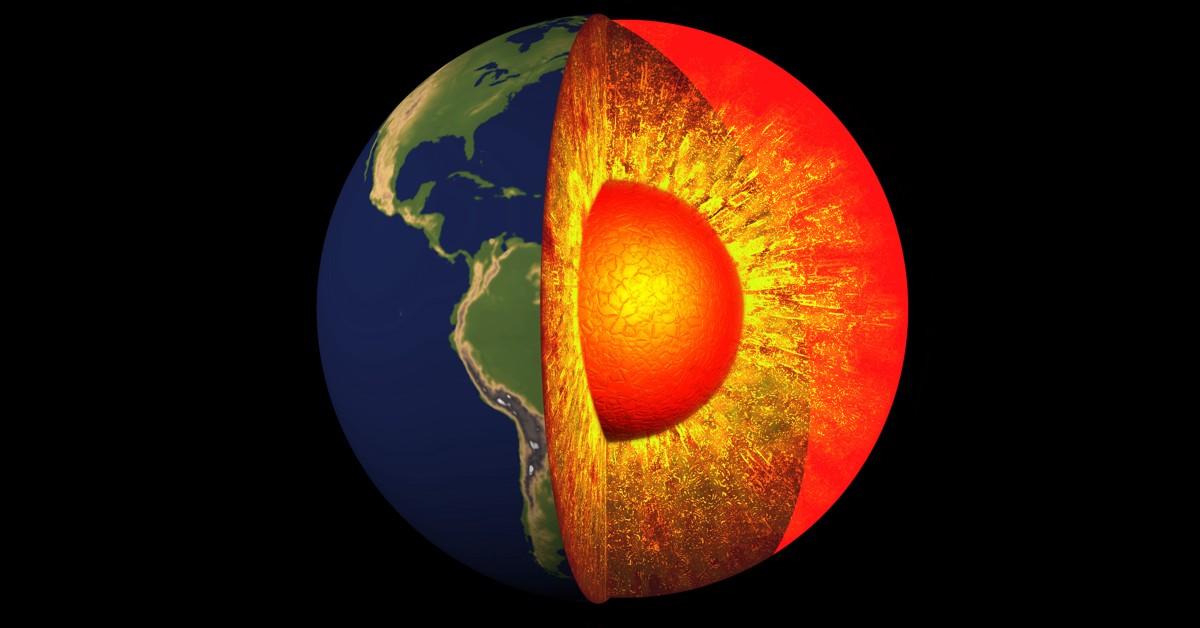The Earth May Be Warming — but Its Core Is Cooling Faster Than We Thought
Published Jan. 19 2022, 1:20 p.m. ET

According to new research, the Earth’s core is cooling much faster than previously thought. And considering how bad global warming is these days, one might think that this news would be a good thing.
But, as any citizen of the year 2022 knows all too well, no good news about planet Earth is ever quite as good as it sounds. In fact, this new discovery about the Earth’s core means that our planet is actually growing a bit closer to becoming an “inactive” planet, like Mars or Mercury.
Does this put Earth in danger? Could the Earth’s rapidly cooling core help fight global warming? Or is it something in between? Keep reading for a simple breakdown of this new research.

The Earth’s rapidly cooling core means our planet is becoming a bit more like Mars.
The study in question was published in the journal Earth and Planetary Science Letters in January 2022. As the authors explain, one can measure planet Earth’s evolution by how it has cooled over the past 4.5 million years, ever since the planet’s surface was “fully covered with a deep magma ocean under extremely high-temperature conditions.”
To measure just how fast the Earth’s core is currently cooling, the researchers behind the paper conducted a lab simulation. They measured the thermal conductivity of bridgmanite, a mineral that makes up an estimated 93 percent of the Earth’s lower mantle, and is therefore often regarded as the most abundant mineral on Earth, as per Mindat.
In the end, they found that compared to what was previously believed, there 1.5 times higher radiative and thermal conductivity at the Earth’s core-mantle boundary. Because of this, the researchers now expect a more “vigorous” mantle convection.
Mantle convection is when hot material rises and cold material sinks, which influences plate tectonics, volcanoes, and the "cooling of the entire planet," as per Yale's Encyclopedia of Solid Earth Geophysics. So basically, that is why the researchers foresee a faster mantle cooling.
“Since we find the thermal conductivity of bridgmanite become 1.5 times higher than previously thought, the heat transfer from the core would go more efficiently than previously thought, which ultimately leads to the cooling of the core more rapidly than expected,” Dr. Motohiko Murakami, an earth sciences professor at ETH Zurich and a co-author of the paper, explained to Newsweek.
“Our results could give us a new perspective on the evolution of the Earth’s dynamics,” Murakami said in a statement, as per Futurism. “They suggest that Earth, like the other rocky planets Mercury and Mars, is cooling and becoming inactive much faster than expected.”
Could the Earth’s rapidly cooling core help fight global warming?
Unfortunately, this discovery is not the magical key to mitigating global warming and ending the climate crisis. In fact, this doesn’t affect global warming at all, since global warming refers to the increasing temperature of the Earth’s atmosphere, while the study is about the temperature of the Earth’s core.
As Murakami explained to Newsweek, the findings mean that Earth's core is on track to cool down in the way that other planets have, such as Mars and Mercury — two planets that cannot sustain life. However, this probably won’t happen to Earth for “millions or even billions of years.” So even though this news won’t do much to affect us right now, it’s still an important discovery in the world of science.